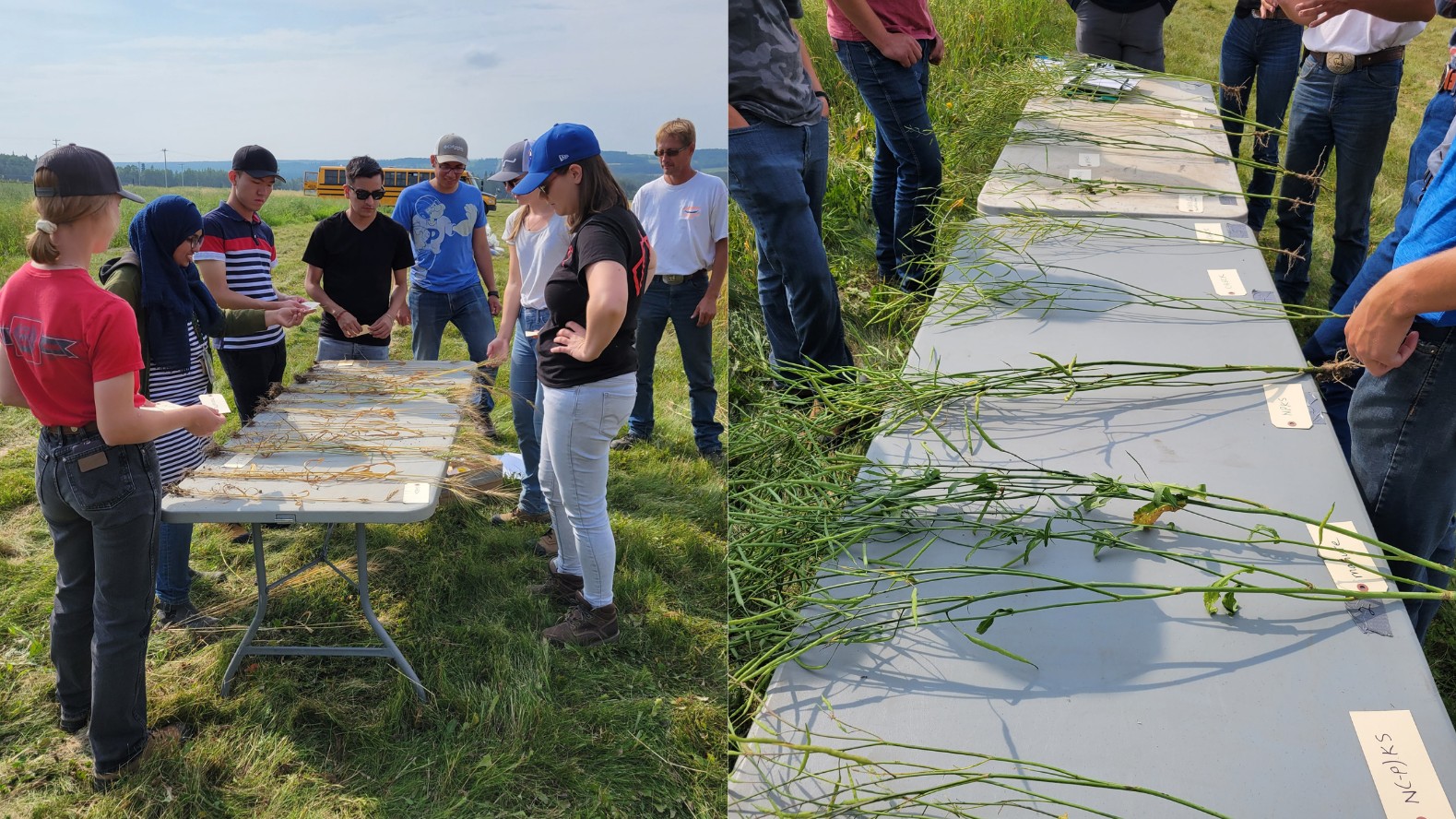Pictures courtesy of Linda Gorim
EDMONTON — Two recently developed courses are taking University of Alberta agriculture students straight to the place where they will get the most relevant experience – the land – allowing them to really dig into the science of farming on the prairies.
The courses were created and taught by Linda Gorim, assistant professor and WGRF Chair in Cropping Systems, through the Faculty of Agricultural, Life & Environmental Sciences.
One of the new courses, Exploring Field Crop Agronomy, was offered for the second time during fall 2022. It provides undergraduate agricultural students hands-on learning about soil management and crop production on farms and fields. Site visits include Gateway Research Organization, Battle River Research Group near Forestburg, the U of A’s Breton Plots and the Brooks area in southern Alberta.
The sites allow students to learn how to identify nutrient deficiency in crops like wheat and canola and soil-borne diseases such as clubroot. The students also learn about determining seeding depths and irrigated agriculture, and view drying bins for grain.
“These are tools they’ll need to be familiar with as agronomists, as they work with universities, research associations and farmers,” Gorim says.
Funding and support for the course is provided by the Alberta Barley and Wheat Commission, the Alberta Canola Producers Commission and Western Grain Research Foundation.
Another course, Experiential Learning in Agriculture, ran for the first time in the summer of 2022, with 11 students in paid internships from May to August as sales agronomists, agronomy associates, and research, horticultural and veterinary assistants.
Real-world experience with employers and clients in the field adds to the knowledge students learn in class, Gorim says, adding both courses give U of A students an edge in the workplace globally.
The courses also equip the students as future stewards of sustainable food production in the face of climate change and the environmental stresses it brings, Gorim believes.
“The students we train will have to find solutions to make sure that agricultural systems don't collapse,” Gorim explains. “It’s important to have the knowledge about what to expect in terms of drought, flooding, and how agronomic practices need to shift, to make sure food production is sustainable in the future.”
More information can be found here. To speak with Linda Gorim, please contact:
Sarah Vernon | University of Alberta communications associate | svernon@ualberta.ca
